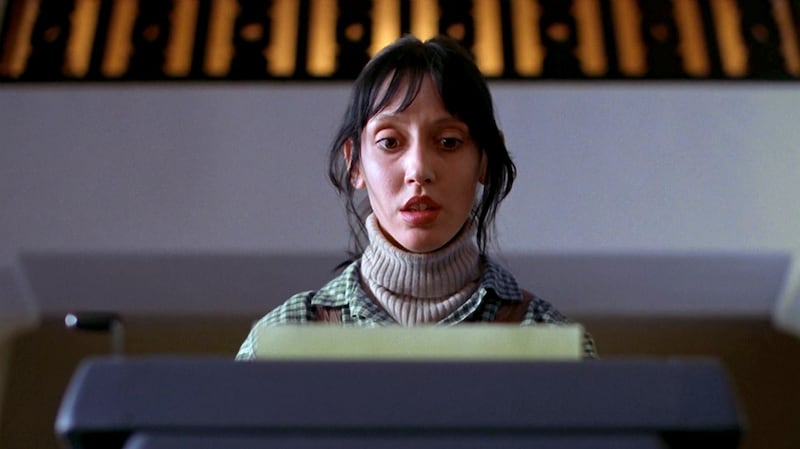Munich-born author Daniel Kehlmann made his name with his fourth novel, the international bestseller Measuring the World (2005), an artful dramatisation of the lives and world-changing discoveries of two famous German scientists. His most recent novel, F in 2014, focused more on ordinary people and their character-enhancing self-discoveries.
In Kehlmann's latest novel – actually novella – the protagonist does not so much have a need for self-discovery as a capacity for self-deception. You Should Have Left (neatly translated by Ross Benjamin) is a well-crafted tale about one man unravelling due to forces beyond his control.
Increasingly, odd incidents and eerie effects play with his mind, warp his judgment and influence his actions. He soldiers on, believing he has the situation under control. Can he recognise the chaos in time and extricate himself from it before it engulfs him?
“It is fitting that I’m beginning a new notebook up here. New surroundings, new ideas, a new beginning. Fresh air.” So writes the book’s unnamed narrator in his journal on Day One of six. His new start is in a rented house in the mountains with his wife Susanna and four-year-old daughter Esther. In Alpine isolation, he sets out to finish his screenplay for a sequel to the film that launched his career.
The first disturbances are commonplace. He argues with his wife. He struggles to understand the characters he has created. He drives in a sweat down hazardously steep and winding roads in his “fuel-filled capsule”, all-too aware that, “One second you’re firmly ensconced in everyday life and thinking about dinner and your tax return, the next you’re wedged in deformed metal while the flames devour you.”
In the village in the valley, he tells a shopkeeper where he is staying. “Anything happen yet?” is the ominous response.
Things start to go bump in the night, and also in the day. He has feverish nightmares, sees ghostly reflections in windows and hears voices on the baby monitor; he is mystified by words he didn’t write, terrorised by an old woman with “awful” eyes, and disorientated by the house’s shifting proportions and perspectives. “You should have left,” he says to himself at crisis-point. “Now it’s too late.”
This book has an obvious literary model: The Shining by Stephen King. Kehlmann even alludes to it to help any readers slow at making the connection. "I do find myself thinking of that movie sometimes," says Susanna, referring to the Stanley Kubrick film. "That good movie based on the not-so-good book." She adds: "The one with all the Steadicam shots."
All work and no play made King’s Jack Torrance a dull boy and a manically repetitive writer. Kehlmann’s narrator’s writing is also the product of a disturbed mind, only his output takes the form of scrappy notes, fragmented ideas and unfinished sentences.
There is a chilling moment when film producer Schmidt calls him to check on his progress. "Nothing came to me. All the things I had sketched and thought through, all the situations and punch lines were as if erased." But Kehlmann's novella has just as much in common with one of fiction's most famous spooky novellas, Henry James's The Turn of the Screw. Both books eschew supernatural fantasy for distorted reality – what James called, "the strange and sinister embroidered on the very type of the normal and easy".
Like James with his governess, Kehlmann forces us to question his narrator’s sanity. Does his memory deceive him and do his eyes and ears play tricks on him? Are these uncanny goings-on happening within or without?
Not everything works. When Susanna tells her husband that “nothing’s more boring than talking about dreams”, we wish he could have heeded her advice and toned down relaying his reveries. And towards the end, Kehlmann resorts to standard suspense-genre tropes: Susanna disappears, the narrator flees into the wilderness with a distraught Esther and his mobile phone has no reception and a fast-draining battery.
Otherwise, You Should Have Left – part-horror, part-psychodrama – serves up effective shocks and thrills that keep us rapt and on the edge of our seats. The narrator's journal slides from excerpts from his screenplay to accounts of his own creeped-out tragedy, and slips from coherence to jumbled trains of thought, and each time we lose purchase yet delight in the confusion and the tension.
While navigating hairpin bends on the mountain road the narrator admits that “the abyss came so close that I cried out”. Kehlmann brings that abyss ever closer and takes his narrator, and his reader, over the edge.
Malcolm Forbes is a regular contributor to The Review.





